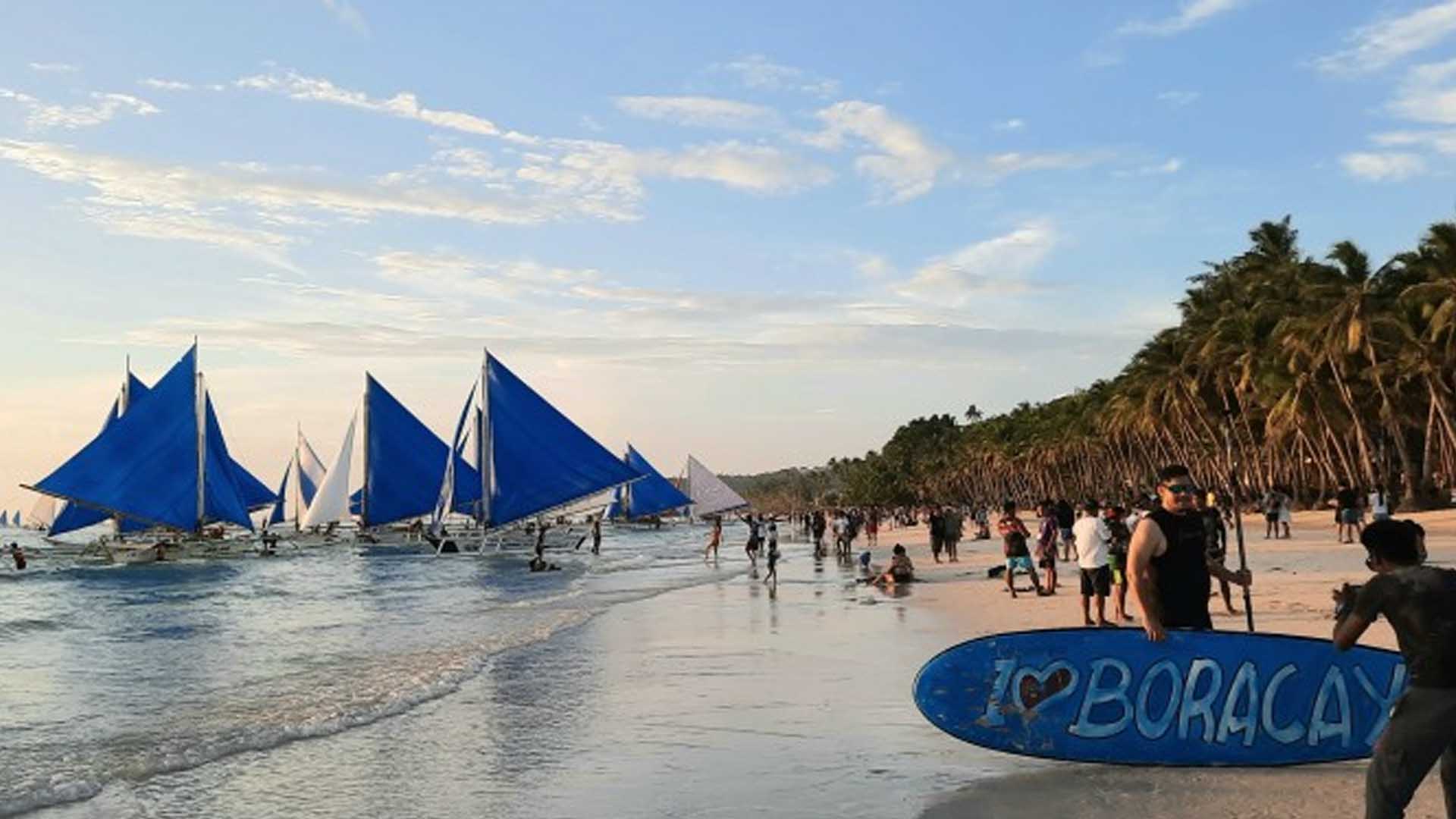As inbound and domestic travel gain momentum, tourism in the Philippines has seen a remarkable turnaround this 2023, breaching targets and continuing to generate employment to millions of Filipinos.
Based on the Department of Tourism’s (DOT) latest data, the industry already surpassed its target of 4.8 million foreign arrivals with over five million visitors recorded as of Dec. 12.
From January to November, the Philippines has hit PHP439.5 billion in foreign visitor receipts shooting past the 2022 figures of PHP208.96 billion.
This number also translates to a 95.85 percent recovery of the 2019 pre-pandemic international visitor receipts, when the country generated PHP458 billion for the same months.
As of Dec. 12, South Korea ranked first as the Philippines’ top source market with 1,341,029 arrivals, followed by the United States with 836,694; Japan with 285,655; China with 252,171; and Australia with 238,487.
Canada landed sixth place with 206,571, followed by Taiwan with 186,140, United Kingdom with 141,516, Singapore with 140,633, and Malaysia with 92,383.
“The performance of Philippine tourism this year has exceeded all expectations. And what these numbers would indicate is a robust economic growth,” Tourism Secretary Christina Frasco said in her year-end assessment report.
Citing the country’s economic managers, Frasco said tourism this year has also emerged as one the “strongest pillars” of the economy, ranking second in terms of the source for growth.
“Notably, the number one source of economic growth is employment of which tourism also contributes in large number of over 5.35 million, in fact,” she said.
Roads, rest areas, flights
Since the beginning of the year, the DOT has been pushing for the construction of more rest areas and roads leading to tourist destinations across the country.
To date, the DOT and its infrastructure arm, the Tourism Infrastructure and Enterprise Zone Authority (TIEZA), have launched ten tourist rest areas, with plans to build 18 more in 2024.
DOT’s collaboration with the Department of Public Works and Highways has also yielded 158 kilometers of tourism roads and an investment of at least PHP16 billion in tourism roads for 2023.
Frasco said the country has likewise recovered nearly 80 percent of its pre-pandemic international incoming seat capacity.
As of November 2023, there are over 1.4 million international seats available, vis-a-vis the one million recorded last year, and the 1.7 million recorded in 2019.
Frasco had also been meeting with stakeholders to relay Manila’s support for direct flights, including with France, the United Kingdom, and Italy.
Consistently ‘leading’
The Philippines once again showcased the unrivaled charm of its beaches and underwater destinations to tourists from across the globe after bagging the World’s Leading Dive Destination and the World’s Leading Beach Destination awards at the prestigious World Travel Awards (WTA) 2023.
The country also net the Global Tourism Resilience Award for demonstrating “global leadership, pioneering vision, and innovation to overcome critical challenges and adversity while Manila was named the World’s Leading City Destination.
The DOT this year also introduced its new tourism branding “Love the Philippines” to emphasize that the Philippines has a lot more to offer than fun from its natural assets and history to its rich culture.
Along with the new campaign, the DOT sought to increase travel activities in other regions by helping them develop lesser-known tourism destinations.
The DOT launched various tourism initiatives such as the Philippine Experience Programs: Culture, Heritage, and Arts Caravan, which emphasized the country’s diverse cultural heritage and has so far staged four in Davao, Calabarzon, Bicol, and Western Visayas.
Better than expected
Leechiu Property Consultants (LPC) graded the industry’s performance as “better than expected,” saying the country’s focus on domestic travel also contributed to its resurgence in the face of “uncertainties” in key source markets such as China and Japan.
“Despite uncertainties in these external markets, the country’s focus on boosting internal tourism significantly bolstered the industry’s stability and growth,” it said.
For 2024, the DOT has set a modest target of 7.7 million foreign visitors, 500,000 less than the 8.2 million arrivals it generated before the pandemic
LPC Director for Hotel, Leisure, and Tourism Alfred Lay said South Korea has returned to about 72 percent arrivals while China only recovered 15 percent.
Lay said the Philippines, Thailand, Vietnam and Indonesia were all in the “same boat” and have witnessed fairly low recovery rates from Chinese inbound guests but the country was still able to breach its 2023 target.
“Next year is going to be a pivotal year because where are we going to get those (2024) numbers? If the Chinese economic slowdown continues and the Japanese Yen stays where it is, maybe the Korean market will give us more but another two million more, I don’t think so,” he said.
“The 7.7 million is a very interesting target and I’m very interested to see what happens next year, to see if the Philippines has the ability to generate two million new arrivals,” he added.
In the short term, he said the low-hanging fruits are always the country’s neighbors — Koreans, Australians, Taiwanese, and Southeast Asian visitors.
The LPC also pointed out that there has been a “notable increase” in foreign investors recognizing the Philippines as a prime investment opportunity.
“This trajectory will likely persist through 2024, propelled by the robust expansion of the tourism sector, untapped markets, proactive government initiatives, and collaborative opportunities and partnerships,” it said.
“These factors collectively position the country (as) an attractive destination for FDI in the tourism sector,” it added.
LPC also looks forward to the establishment of the Maharlika Fund after President and CEO Rafael Jose Consing Jr. nominated tourism-related infrastructure as one of its four investment pillars.
For LPC, the prioritization of projects such as the New Manila International Airport in Bulacan, the rehabilitation of the Ninoy Aquino International Airport, the Laoag International Airport Development project, and the upgrade of the Laguindingan Airport is a “strategic move” given their potential to boost the tourism sector. (PNA)







